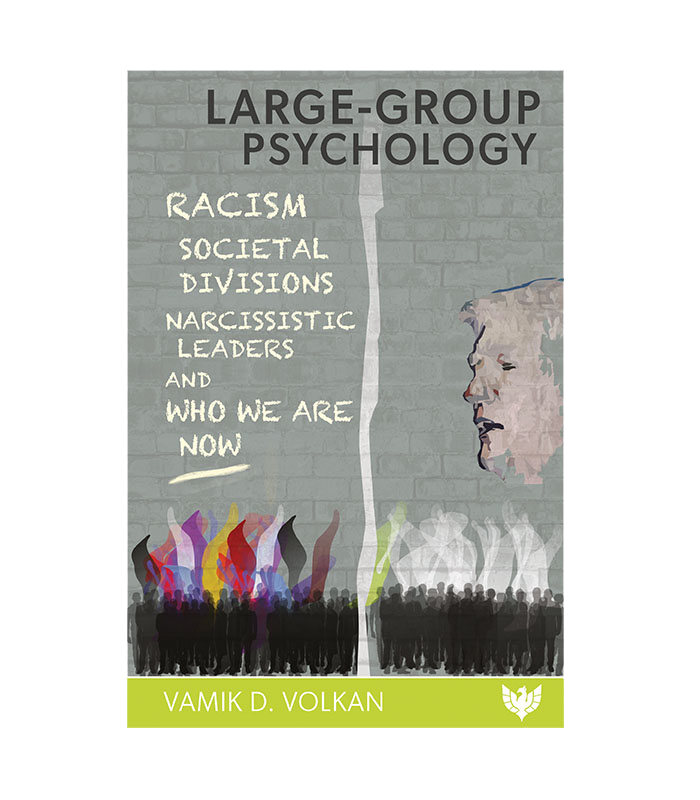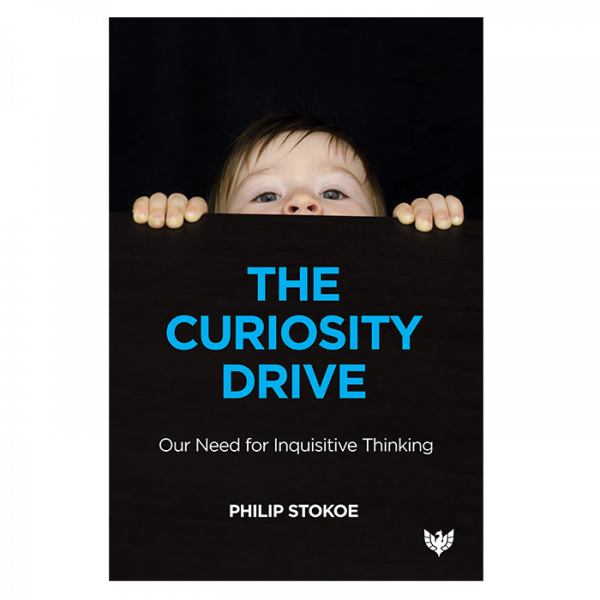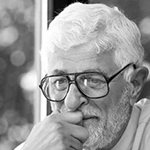Winner of the 2021 Gradiva Award
Following the deadly 2017 white supremacist rally in Charlottesville, Virginia, numerous recent, and fatal, attacks on mosques, churches, and synagogues occurring worldwide, and increasing totalitarianism and paranoia spreading through many countries, Dr. Vamık Volkan could no longer ignore the urge to write a new book about large-group problems. In many countries, people are asking the metaphorical question “Who are we now?” and coming up with seemingly opposite answers. This book looks into the reasons why this is happening.
With a summary of Sigmund Freud’s ideas about large groups – which focus on the individual – Dr Volkan builds on this base to explain what large-group psychology is in its own right and applies it to present-day society. How it develops in adulthood, the psychology of decision-making and political leader/follower relationships, political propaganda, and exaggerated narcissism in leaders are all examined.
We are all members of at least one large group. Looking into large-group identity provides background data for investigating the spread of racism, authoritarian regimes, malignant political propaganda, wall building, and interferences with democratic processes and human rights issues.
Large-Group Psychology: Racism, Societal Divisions, Narcissistic Leaders and Who We Are Now is the perfect book for those questioning what is happening in society today and why.






Brigitte Demeure, PhD, President of the French Society of Psychohistory and former Vice-president of the A2IP (Association Internationale Interactions de la psychanalyse) –
‘What strikes me again on reading this book by Vamık Volkan is his extraordinary capacity to convey complex concepts resulting from psychoanalysis in a language that can be understood by everyone, and how they can be applied to society at large. Vamık Volkan reveals the ways in which his personal story, linked to large-group conflicts in Cyprus, his international diplomatic experiences, and his long experience as a psychoanalyst, are interweaved with the development of his theoretical frameworks, which greatly contribute to the understanding of our present time.
‘In this book, Vamık Volkan addresses major present issues, like the growing divide of large groups, the technical changes (robotization, AI), the psychology of political leaders, linked to this essential question: “Who are we now as a civilization?” Large-group psychology, resulting from Vamık Volkan’s works, should be an integral part of all university studies, as much as history and other academic science humanities.’
Maurice Apprey, PhD, DM, FIPA, Professor of Psychiatry, Dean of African American Affairs,and Associate Vice-president of Student Affairs, University of Virginia and Training and Supervising Psychoanalyst, Contemporary Freudian Society –
‘Having been a close witness to Dr. Volkan’s teachings, writings, and practices on large-group psychology for four decades, I heartily welcome his classic tome on the subject. We have here a masterful, comprehensive, and highly nuanced chronicle of his work that draws wisdom from private and public consultations in such august places as the US State Department, the offices of Foreign Ministries abroad, the Kremlin, classrooms in Finland, Germany, Israel, Austria, Turkey and here in the United States, among many other settings. In all these environs, he has enabled curious minds to expand in ethical, productive, and creative ways, closed minds to gradually open, enabled bellicose enemies and allies in fractured communities to reconfigure their embedded hostilities.
‘Henceforth, psychoanalysts, psychologically minded diplomats, historians and other scholars will think and practice differently. Henceforth, the intersection between internal and external spheres of reference will become a productive and curative space for working through traumatic and unmetabolized and/or disabling communal memories. A spiral causality where inside and outside change spaces, historical and contemporary events mirror each other and obligate us to resubjectivize the events of history into a represented sense of history will have pride of place in clinical inquiry, peacemaking, nation building, and multiple contexts of conflict resolution. After reading “Large-Group Psychology”, as the subtitle of the book points to, we will have to ask ourselves who we are in the face of racism, societal divisions, and narcissistic leaders in turbulent times such as ours today.’
Gunther Perdigao, M. D., Member of the Executive Committee, International Psychoanalytical Association and Associate Secretary General, International Psychoanalytical Association 2009–2013 –
‘Vamık Volkan in his new book masterfully weaves together the many strands that go into the formation of the concept “large-group psychology”. The central psychological factor in starting and keeping alive large-group conflicts is the protection and maintenance of large-group identity such as “We are Palestinians” or “We are Croats”.
‘His impetus to write the book was outrage over a racist incident in his hometown. The response by the authorities was an endorsement of societal division. The focus of this book is an examination of the causes of such divisions. He provides an absorbing narrative of his unique conceptual psychoanalytic approach. His suggested interventions are based on his understanding of the conflict. He addresses and suggests approaches to diffuse flashpoints of conflicts in many countries. He is a gifted writer who describes how personal incidents in his life led to his lifelong interest in the field of large-group interactions.
‘To sum up, this is an outstanding book that will reward the reader with a clear understanding of the underlying causes of large group conflicts.’
John Jacob Hartman, ‘Clio Psyche’ Vol. 27 No. 1 (2020) –
‘…written in plain English, free of jargon, and with many examples and stories from the author’s vast experience with patients, countries, world leaders, and most importantly, with himself as a Turk growing up in a divided Cyprus, coming to the United States, and becoming a world figure. As such, this is a book that can be read profitably by the general public, historians, and mental health workers unfamiliar with Volkan’s contributions, as well as grizzled veterans of psychohistory more familiar with his work. … there are still new things to be learned here. … Volkan is one of the most creative and inspiring psychoanalytic writers of our time. His work, inside and outside of the consulting room, deserves to be widely known. This book goes a long way in making that happen.’
Regine Scholz, Group Analysis 54:3 (2021) –
‘Vamik D. Volkan is a well-known writer, author of countless articles and more than 50 books. This one might perhaps be his most personal and, at the same time, concise one. For me it was felt on every page, how much the topic — large group psychology in its own right — means to him and how deeply he feels the necessity to convey his thoughts and findings in this area to a wider public, considering the concepts and their application as valuable tools to understand and improve international relationships.
… He does so in a remarkably focused way and easy to read language …
[Chapter 6] contains in a very condensed form a complete strategy for planning and performing a reconciliation process. For those who want to work in that field it is highly recommended …
This book is dedicated to bring to the attention of the wider public the importance of large group identity issues … It is a comprehensive summary of the author’s ideas and concepts, offering answers to some of the most urgent problems of our time and showing how impregnated individual psychology is by the surrounding social movements. … Vamik Volkan has an extraordinary gift to bring complex psychological, psycho-political issues to many people’s attention, people often outside the psychological community.’
Robi Friedman, Group Analysis 54(3) –
‘Vamik’s newest book reads easily, even if he writes about the most complex issues in the world. … I believe that there is no other thinker whose conceptualizations contribute so much to our ability to think about socio-political issues in society. …
I find Vamik’s attempts to analyse society thought-provoking because he tries to connect the society, the ‘large group’ and the individual in a complex way. … Vamik’s biggest creative act is the translation from the psychological, even psychoanalytical, thinking into a simpler socio-political thinking.’
Amazon review: Alex, January 2021 –
5/5 stars: True expert on large group dynamics
Heard him speak at the Freud Museum in London virtually and then picked up this book. If you have some dynamic knowledge under your belt, it’s very much worth reading as it illustrates the almost guaranteed responses that come up again and again. This book speaks mostly about large group identity and then on narcissism of leaders in general and helped me to have a clear picture of why our present world and historical examples look so similar. The dynamics of people presently and historically remain largely similar and hence seeing examples in this text helped to better understand my world and the world of my patients of other large groups.
Amazon review: User GB, March 2021 –
5/5 stars: Excellent and insightful
Well worth reading, personal stories and accessible theory expand and deepen understanding of large group psychology, racism and the role of leadership.
Colin Feltham, emeritus professor of critical counselling studies at Sheffield Hallam University – BACP Therapy Today Sept. 2020 –
‘The chapter on large-group psychology is informative, demonstrating roots in Freudian writing and touching on ‘we-ness’, shared prejudice, externalisation, the ‘other’, transgenerational transmissions, large-group mourning, trauma, entitlement and regression […] it should appeal to a wide range of students of psychotherapy, psychology and sociology.’